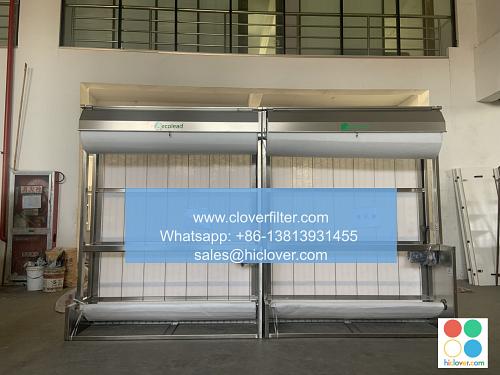The Most Common Mistakes People Make When Choosing an Air Filter

Choosing the right air purification system can be a daunting task, especially with the numerous options available in the market. A good air filter is essential for maintaining indoor air quality, reducing allergens and pollutants, and promoting a healthy indoor environment. However, many people make mistakes when selecting an air filter that can lead to reduced performance, increased energy consumption, and even health problems. In this article, we will highlight the most common mistakes people make when choosing an air filter and provide guidance on how to avoid them.
Mistake 1: Not Considering the MERV Rating
One of the most critical factors to consider when choosing an air filter is the
Mistake 2: Not Choosing the Right Filter Type
There are several types of air filters available, including HEPA (High Efficiency Particulate Air) filters, activated carbon filters, and electrostatic filters. Each type of filter is designed for specific application areas, such as residential HVAC systems, commercial air purification systems, or industrial air cleaning systems. Choosing the wrong type of filter can lead to reduced performance and increased maintenance costs.
Mistake 3: Not Checking the Filter Size
Another common mistake people make when choosing an air filter is not checking the filter size. A filter that is too small or too large for the air purification system can lead to reduced performance, increased energy consumption, and even system damage. It is essential to check the filter size specifications to ensure that the filter is compatible with the air purification system.
Mistake 4: Not Considering the Maintenance Costs
Some air filters require more maintenance than others, which can increase the overall cost of ownership. For example, HEPA filters may require more frequent replacement than activated carbon filters. It is essential to consider the maintenance costs when choosing an air filter to ensure that it fits within your budget.
Mistake 5: Not Looking for Certifications
Finally, many people fail to look for certifications when choosing an air filter. Certifications such as UL (Underwriters Laboratories) certification or ASHRAE (American Society of Heating, Refrigerating, and Air-Conditioning Engineers) certification ensure that the filter meets certain standards for performance and safety. Looking for certifications can give you peace of mind and ensure that you are getting a high-quality air filter.
Conclusion
Choosing the right air filter can be a complex task, but by avoiding common mistakes, you can ensure that you get a filter that meets your needs and provides effective indoor air purification. Remember to consider the MERV rating, filter type, filter size, maintenance costs, and certifications when selecting an air filter. By doing so, you can promote a healthy indoor environment, reduce allergens and pollutants, and enjoy the benefits of a well-functioning air purification system.
Some of the application areas where the right air filter can make a significant difference include:
* Residential HVAC systems
* Commercial air purification systems
* Industrial air cleaning systems
* Healthcare facilities
* Food processing plants
* Pharmaceutical manufacturing facilities
By choosing the right air filter for your specific application area, you can ensure effective indoor air purification and promote a healthy indoor environment. It looks like you didn’t provide a prompt. Please go ahead and give me something to work with, and I’ll do my best to help!

